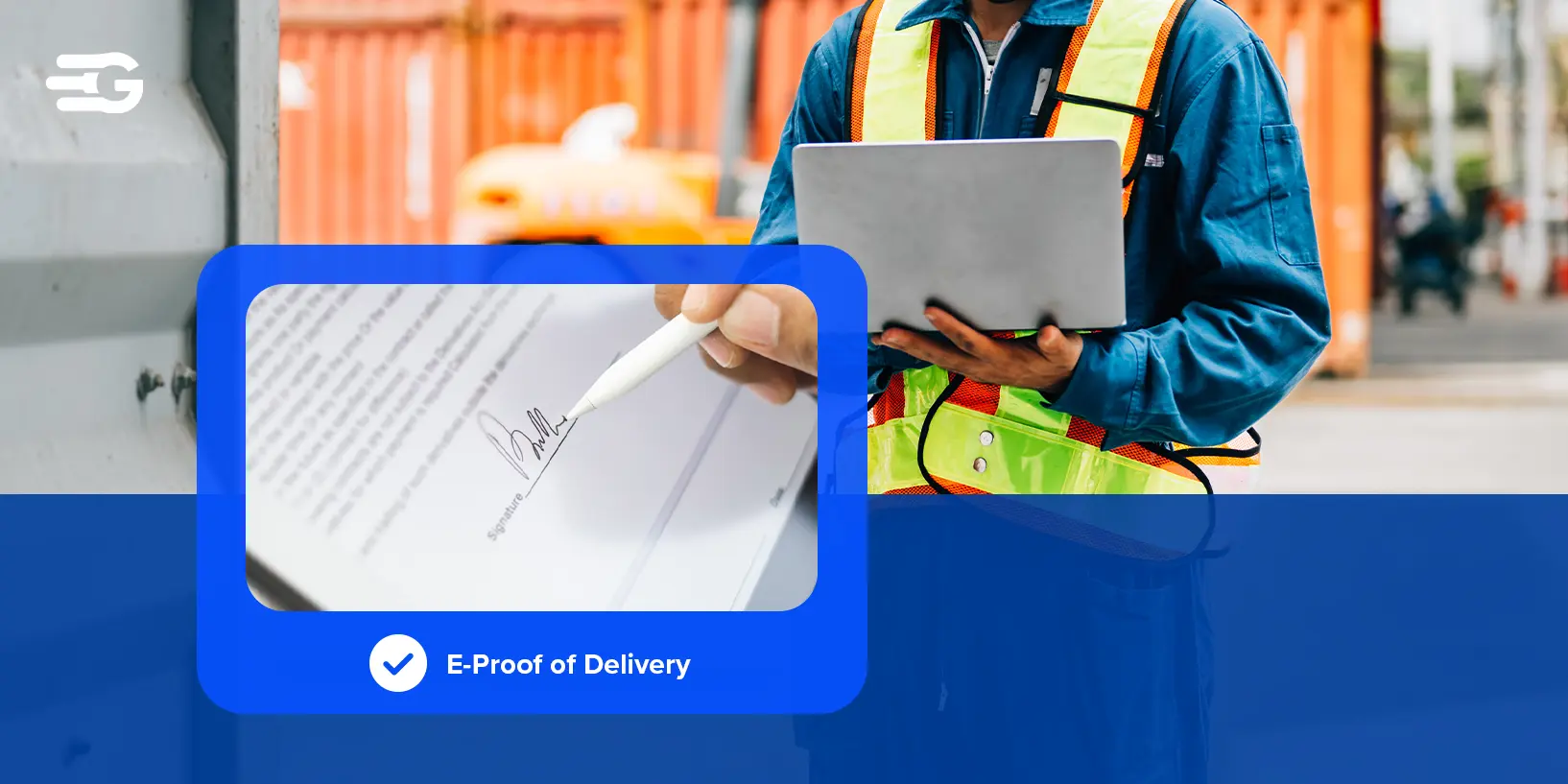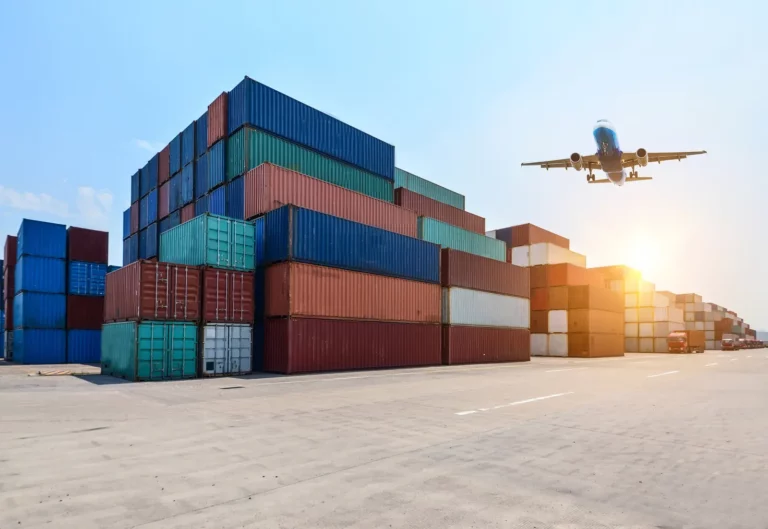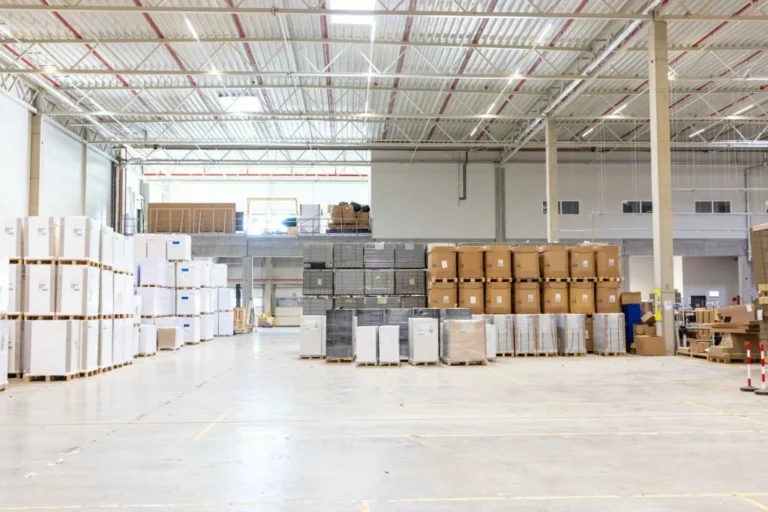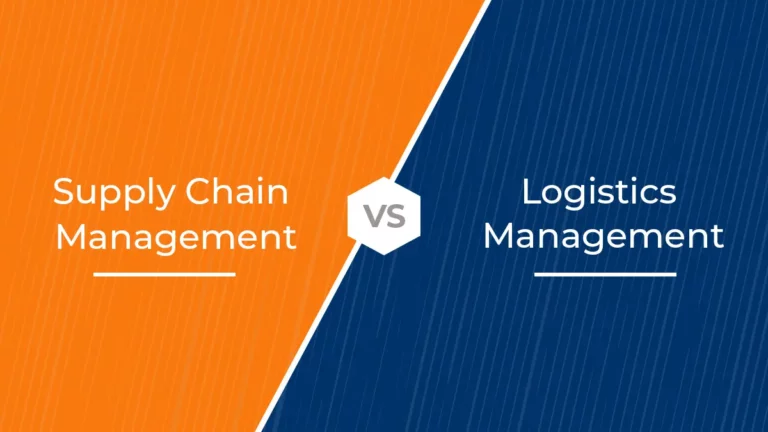Proof of Delivery (POD): A Complete Guide for Businesses
Ever had a package marked as “delivered” but couldn’t find it? Now, imagine this happening in business, causing delays, disputes, and lost revenue. That’s why Proof of Delivery (POD) is essential.
POD ensures shipments reach the right hands, reducing fraud, preventing disputes, and improving customer trust. With businesses shifting to electronic proof of delivery software, the process is now faster, more accurate, and secure.
This guide covers what POD is, why it matters, and how to implement it for a seamless delivery process. Let’s get started!
What is Proof of Delivery (POD)?
Proof of Delivery (POD) is a document or digital record that confirms a shipment was delivered to the right person. It’s how businesses prove a package reached its destination, helping avoid disputes, prevent fraud, and keep accurate records.
Traditionally, POD was a paper receipt signed by the recipient. Now, many businesses use electronic proof of delivery (ePOD), which captures signatures, timestamps, and even photos for extra security. A POD typically includes the recipient’s name, delivery time, and notes on the package’s condition.
Logistics companies rely on POD to confirm deliveries, settle complaints, and keep records organized. Without it, businesses risk chargebacks, lost shipments, and customer disputes. A clear POD process ensures accountability and smooth operations.
Why Proof of Delivery Matters for Businesses
Proof of Delivery (POD) isn’t just paperwork. It’s a safety net for businesses. It confirms that shipments reach the right person, prevents costly disputes, and keeps records clean. Without it, companies risk missing packages, chargebacks, and frustrated customers. Here’s why POD is essential:
Ensuring Secure and Verified Deliveries
Lost shipments aren’t just an inconvenience. They can mean financial losses and damaged reputations. POD eliminates the guesswork by providing solid proof of delivery. Whether a physical signature, a digital confirmation, or a timestamped photo, it ensures accountability at every step.
Reducing Disputes and Fraud Risks
False claims about missing or damaged shipments can drain revenue and waste time. With POD, businesses have clear evidence of delivery, making it easy to resolve disputes and push back against fraudulent chargebacks. It also protects customers, ensuring they get what they paid for.
Improving Customer Satisfaction and Trust
No one likes wondering whether their package actually arrived. When businesses provide clear delivery confirmation, it reassures customers and strengthens trust. A smooth, transparent POD process shows reliability, which leads to repeat business and fewer complaints.
Enhancing Record-Keeping and Compliance
Every shipment is a transaction that needs to be documented. Whether for audits, legal requirements, or internal tracking, POD provides an organized, verifiable record. It helps businesses stay compliant, reduces errors, and ensures smooth logistics operations.
Types of Proof of Delivery
Not all proof of delivery methods are the same. Businesses use different types depending on their needs, but the goal is always the same. A clear, verifiable confirmation that a shipment reached the right hands.
Physical Proof of Delivery (Paper POD)
The old-school method involves a paper receipt signed by the recipient. It’s simple and widely recognized but comes with drawbacks. Paper PODs can be misplaced, damaged, or even forged, making them less reliable for businesses that need airtight records.
Electronic Proof of Delivery (ePOD) and Its Benefits
ePOD replaces paper with digital records, offering a faster and more secure way to confirm deliveries. It captures signatures, timestamps, and even delivery photos, reducing errors and fraud. Real-time updates keep logistics teams informed, and seamless integration with transportation management systems (TMS) makes tracking effortless. With businesses moving toward automation, ePOD is quickly becoming the standard.
How to Implement an Electronic Proof of Delivery System
Switching to an electronic Proof of Delivery (ePOD) system can significantly improve efficiency by reducing paperwork, minimizing errors, and providing real-time updates. But to get the most out of it, you need the right features, seamless integration, and a system that works for your business.
Key Features of an ePOD Solution
A good ePOD system should do more than just collect signatures. It should offer:
- Real-time tracking and digital signatures: Allows businesses to confirm deliveries instantly and prevents disputes over missed shipments.
- Photo capture and geotagging: Provides visual proof and precise location data, ensuring deliveries are made to the right place.
- Automated notifications: Keeps customers informed with instant delivery confirmations, reducing “Where’s my order?” inquiries.
- Seamless integration: Should connect with Transportation Management Systems (TMS), ERP, and supply chain platforms to streamline data flow and improve visibility.
Choosing the Right ePOD Software for Your Business
Not all ePOD solutions offer the same benefits. When selecting the right one, consider:
- Ease of use: Drivers and customers should find it simple to navigate. A complicated system slows down adoption and creates inefficiencies.
- Scalability: The software should be able to handle growing delivery volumes without performance issues.
- Customization: Every business operates differently. Look for a system that lets you tailor workflows, forms, and notifications to fit your processes.
Implementing ePOD is about making deliveries smoother, faster, and more transparent. A well-chosen system helps businesses reduce disputes, improve record-keeping, and build customer trust while staying ahead in an increasingly digital supply chain.
Integrating ePOD with Supply Chain and TMS
An electronic Proof of Delivery (ePOD) system is most effective when it seamlessly connects with your Transportation Management System (TMS) and other supply chain platforms. This integration ensures:
- Real-time data flow: Delivery updates instantly sync with your system, keeping everyone on the same page.
- Better visibility: Businesses can track shipments, monitor performance, and analyze delivery trends in one place.
- Faster dispute resolution: With accurate, time-stamped records, companies can quickly resolve issues related to delayed or missing deliveries.
A well-integrated ePOD system eliminates manual data entry, reduces errors, and provides end-to-end transparency across logistics operations.
Staff Training and Adoption Best Practices
Even the best ePOD software won’t deliver results if employees don’t use it effectively. To ensure smooth adoption:
- Provide hands-on training: Let drivers and logistics staff practice using the system in real-world scenarios.
- Create easy-to-follow guides: Step-by-step instructions help employees navigate the software with minimal confusion.
- Encourage feedback: Drivers and warehouse teams often have valuable insights. Address their concerns to improve usability and adoption.
A well-trained team ensures faster deliveries, fewer errors, and better compliance with delivery procedures.
Data Security and Compliance Considerations
Handling digital proof of delivery means dealing with sensitive customer and business data. To keep it secure:
- Ensure regulatory compliance: The system should meet GDPR, CCPA, or other data protection laws based on your region.
- Implement encryption and access controls: Data should be protected at all times, with strict user permissions to prevent unauthorized access.
- Regularly update and audit security measures: Cybersecurity threats evolve, so periodic reviews help prevent breaches.
A secure ePOD system protects businesses from legal risks, builds customer trust, and ensures smooth, compliant operations.
Proof of Delivery vs. Delivery Tracking: Key Differences
While both POD and delivery tracking monitor shipments, they serve different purposes:
- Delivery tracking shows the shipment’s progress in real-time.
- Proof of Delivery confirms that the shipment was successfully received.
Conclusion
Proof of Delivery is essential for secure, verified shipments. Whether using paper POD or electronic proof of delivery software, businesses benefit from better record-keeping, reduced disputes, and improved customer trust. As logistics operations evolve, integrating ePOD with TMS will become a standard practice for efficiency and compliance.
Frequently Asked Questions
What documents qualify as Proof of Delivery?
POD can be a signed delivery receipt, a digital signature, a timestamped photo, or an electronic confirmation from the recipient. Businesses may also use invoices or packing slips with signatures as proof.
How does POD help in chargebacks and claims?
A clear POD prevents false claims by proving that an order was delivered as agreed. This helps businesses dispute chargebacks, reduce fraud, and settle disputes quickly with verifiable evidence.
What industries benefit the most from ePOD?
Industries with high delivery volumes, such as e-commerce, logistics, healthcare, and food delivery, gain the most from ePOD. It ensures faster verification, better tracking, and improved customer satisfaction.






